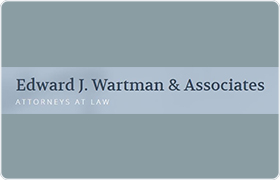Gary Bankruptcy & Debt Lawyer, Indiana, page 2
Sponsored Law Firm
-
 x
x

Click For More Info:
-
Edward J. Wartman & Associates
516 East 86th Avenue Merrillville, IN 46410» view mapBankruptcy & Debt Law Highest Quality of Legal Services
At Edward J. Wartman & Associates Our experience runs deep and our successes are numerous, yet our motivation is simple.
219-791-1520
Morton L. Efron
Estate Planning, Family Law, Contract, Bankruptcy
Status: In Good Standing Licensed: 62 Years
Shawn Douglas Cox
Litigation, Electronic Commerce, Health Care Other, Bankruptcy
Status: In Good Standing
Calvin Delee Hawkins
Federal Appellate Practice, Family Law, Consumer Rights, Bankruptcy
Status: In Good Standing Licensed: 53 Years
Kevin Michael Schmidt
Wills & Probate, Family Law, Business, Bankruptcy
Status: In Good Standing Licensed: 37 Years
Irene Constan Gasparis
Traffic, Wills & Probate, Divorce & Family Law, Criminal, Bankruptcy & Debt
Status: In Good Standing
Nicholas Constantine Catsadimas
Estate, Child Support, Criminal, Bankruptcy
Status: In Good Standing Licensed: 24 Years
 Edward Wartman Merrillville, IN
Edward Wartman Merrillville, IN
